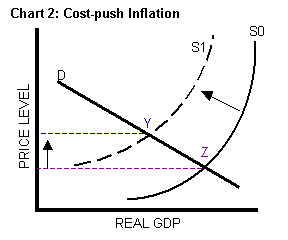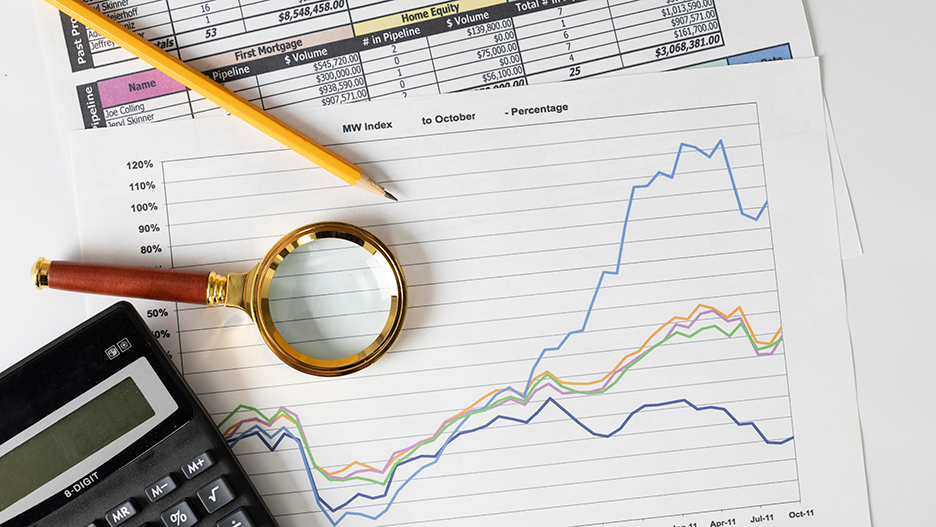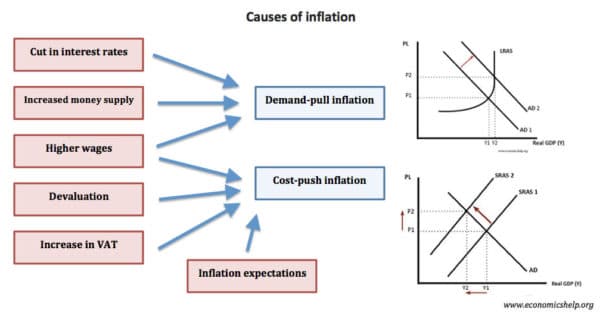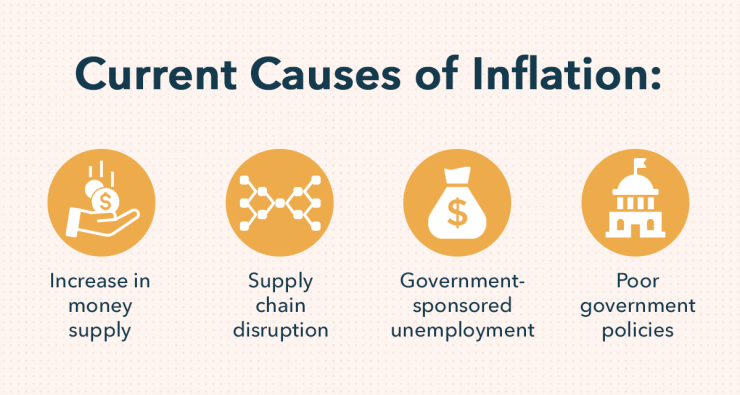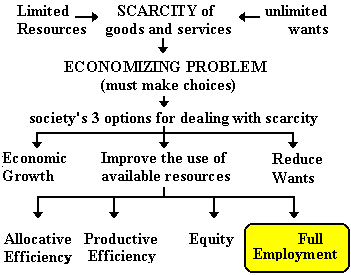Inflation is an economic phenomenon that refers to a sustained increase in the general price level of goods and services in an economy over a period of time. When the general price level rises, each unit of currency buys fewer goods and services; consequently, inflation reflects a reduction in the purchasing power of money – a loss of real value in the medium of exchange and unit of account within an economy.
There are several factors that can cause inflation to occur. One of the most common causes of inflation is an increase in the money supply. When the supply of money increases faster than the supply of goods and services, the value of each individual unit of currency decreases. This can lead to a general increase in prices, as people have more money to spend but the same amount of goods and services to purchase.
Another common cause of inflation is an increase in production costs. When the cost of producing goods and services increases, firms may pass these increased costs on to consumers in the form of higher prices. For example, if the cost of raw materials or labor increases, firms may need to raise prices in order to maintain their profit margins.
Inflation can also be caused by external factors, such as changes in exchange rates or shifts in global demand. If a country's currency depreciates in value relative to other currencies, the cost of imported goods may increase, leading to higher domestic prices. Similarly, if global demand for a particular good or service increases, the price of that good or service may also rise.
Finally, inflation can also be caused by government policies, such as changes in taxes or spending. For example, if the government increases spending without corresponding increases in tax revenues, it may need to print more money to finance its deficit, which can lead to an increase in the money supply and ultimately to inflation.
Inflation can have both positive and negative effects on an economy. On the one hand, moderate inflation may stimulate economic growth by encouraging spending and investment, as people may expect prices to rise in the future and therefore try to purchase goods and services sooner rather than later. On the other hand, high inflation can be detrimental to an economy, as it can lead to uncertainty and discourage long-term planning and investment. It can also disproportionately affect those on fixed incomes, such as retirees, who may find it difficult to keep up with rising prices.
In conclusion, inflation is a complex and multifaceted phenomenon that can be caused by a variety of factors, including changes in the money supply, production costs, exchange rates, global demand, and government policies. While moderate inflation can have positive effects on an economy, high inflation can be detrimental and should be carefully monitored and managed by policymakers.

